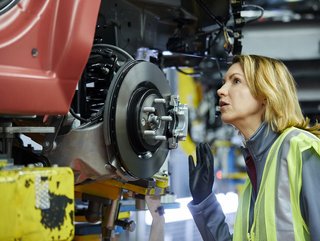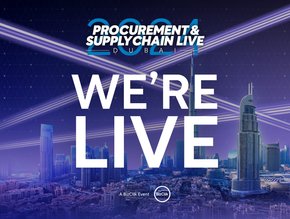Top 10 biggest automotive manufacturer supply chains

Two automotive CEOs are historically pivotal figures not only in the world of automotive manufacturing but also in the wider world of supply chain itself.
Henry Ford is the founding father of mass manufacturing who, with his mass-produced Model-T, was responsible for reshaping industrial processes worldwide and with it, the way mass-produced products needed to be moved.
Then, 40 years later, Toyota CEO Yumi Otsuka decided to cut back on excess inventory and ordered components and spares only when needed. It produced efficiency savings that saw Toyota shoot up the auto-makers league table, past American car makers who were rooted in Ford’s then-outmoded manufacturing methods. Otsuka had invented just-in-time 'lean manufacturing'.
Ford and Toyota are of course still going strong today, and both feature in this list of the world’s most expansive automotive supply chains. (Note: Annual output figures are averaged over the past four years (2018-22) so that pre-pandemic performance is reflected.)
Largest automotive supply chains: Volkswagen
Annual output: 9.6mn units
The Volkswagen Group’s vast global supply chain spans multiple brands, including Volkswagen, Audi and Porsche.
Volkswagen collaborates globally with a wide array of suppliers, including both direct suppliers and those in tier two. It works closely with its suppliers to improve capabilities, quality of output and sustainability standards. Volkswagen also leverages digital technologies and data integration to improve supply chain visibility and efficiency.
Largest automotive supply chains: Toyota
Annual output: 8.2mn units
In keeping with its reputation as an innovator for the ages, Toyota Group has a highly integrated supply chain, which includes numerous subsidiaries, suppliers, and partners. Its lean manufacturing model – known as the Toyota Production System – has been widely adopted by other automakers because it is recognised for its efficiency and cost-effectiveness.
The company has long-term relationships with its suppliers and, it says, “we emphasise collaboration, trust and continuous improvement”
Largest automotive supply chains: NRM Alliance
Annual output: 8.1mn units
NRM (Nissan-Renault-Mitsubishi Alliance) has its origins in the 1990 partnership struck by Renault and Nissan, with Mitsubishi joining in 2017.
To optimise operations, NRM uses a common purchasing system that allows Alliance3 members to enjoy economies of scale, both on production costs and also sustainability initiatives. It says its dealings with suppliers are based on “trust, respect and transparency”.
Largest automotive supply chains: General Motors
Annual output: 7.3mn units
GM’s global supply chain network supports iconic brands that include Chevrolet, Cadillac, GMC and Buick.
GM runs a rigorous supplier selection process, evaluating potential suppliers based on factors such as cost. delivery capability and technological expertise.
It now uses digital platforms for real-time communication and supplier information-sharing, which has helped it respond to the violent demand fluctuations of recent years.
Largest automotive supply chains: Honda
Annual output: 5.1mn units
Japan-based Honda manufactures both cars and motorcycles (and is also a world leader in power equipment manufacturing, although that is discounted here).
Like Toyota, Honda runs on lean manufacturing principles to optimise its supply chain operations. This includes waste reduction and streamlining processes to up efficiency and productivity.
It also balances global sourcing with regional manufacturing to ensure supply chain resilience and to mitigate risk.
Largest automotive supply chains: Ford
Annual output: 4.7mn units
In the 120 years of its history Ford has remained as the automaker to the masses, producing reliable and affordable cars, trucks and vans.
Ford is long on quality control throughout its supply chain, and collaborates closely with suppliers to ensure adherence to quality requirements. It works with suppliers to ensure business continuity and minimise disruptions to production and delivery.
Logistically, it uses tech to optimise transport routes, inventory levels, and to streamline operations.
Largest automotive supply chains: Hyundai
Annual output: 4.4mn units
South Korean auto manufacturer Hyundai – with its subsidiary, Kia – operates a global supply chain to support its increasingly impressive output.
It runs strategic relationships with its suppliers, with strong emphasis on quality, cost efficiency, and innovation.
The company’s digital platforms, meanwhile, offer real-time data analytics around inventory management, communication with suppliers, and decision-making.
Largest automotive supply chains: Stellantis
Annual output: 3.2mn units
Stellantis was formed in 2021, following a merger between the Italian–American conglomerate, Fiat Chrysler Automobiles and the French PSA Group. Its 16 brands include Alfa Romeo, Chrysler, Citroën, Dodge, Fiat, Maserati, Opel, Peugeot and Vauxhall.
Each day, millions of parts are delivered to Stellantis facilities worldwide, and this is achieved thanks to close collaboration with shipping companies and freight forwarders.
The Company is also optimising transport plans, loads and volumes, and developing inter-modality to cut CO2 emissions.
Largest automotive supply chains: BMW
Annual output: 2.9mn units
Luxury automaker BMW Group makes BMW, Mini, and Rolls-Royce brands. It adopts a platform strategy, whereby multiple vehicle models share common components and technologies. This improves efficiency, cuts costs, and streamlines the supply chain, because parts are interchangeable, as are production processes.
It also runs joint-development projects with suppliers, such as technology sharing, to drive continuous improvement, foster innovation and improve product development.
Largest automotive supply chains: Mercedes-Benz
Annual output: 2.8mn units
The Mercedes-Benz Group AG (former Daimler AG) is a leading global supplier of premium and luxury cars and vans.
The company has recently partnered with Microsoft on improving its production systems, by creating a data platform to give transparency across every factory, and to optimise inventory management and supply chain efficiency.
The system also allows Mercedes to resolve logistical bottlenecks using “dynamic prioritisation”, which puts top-end and electric vehicles first in line for resources.






